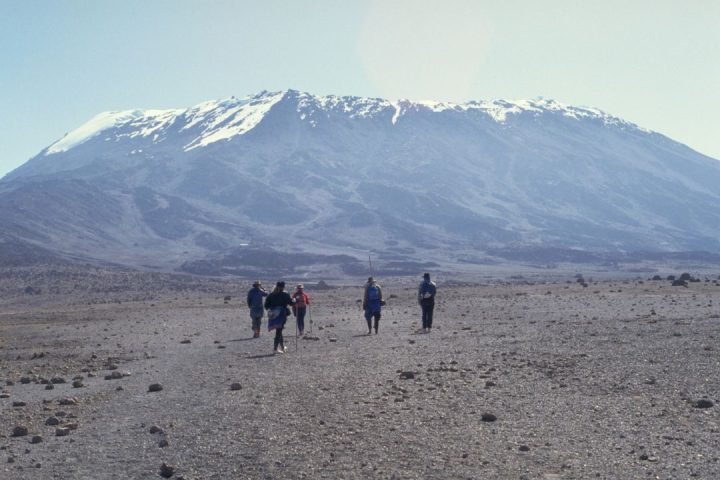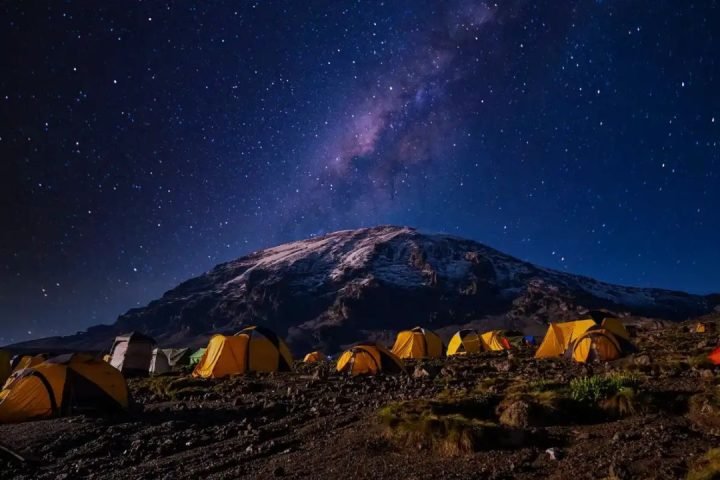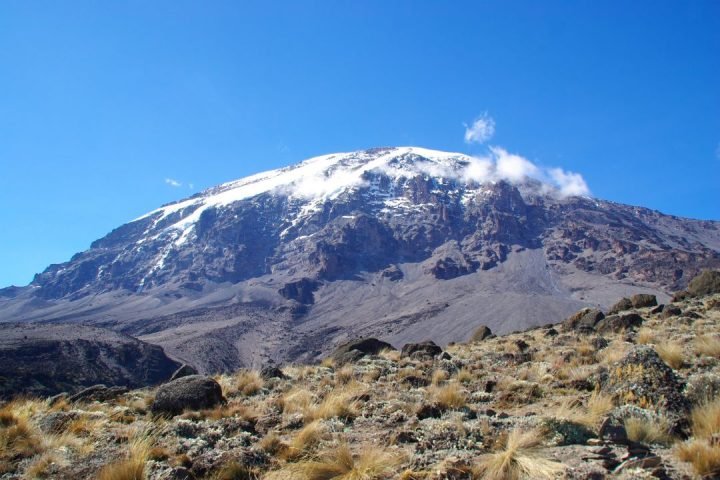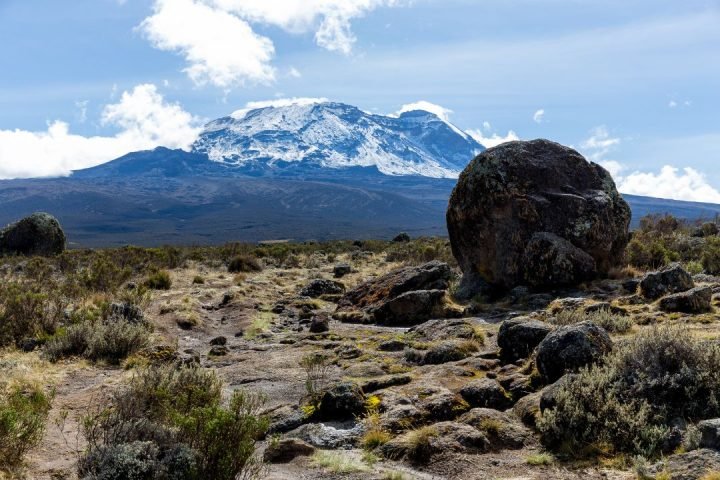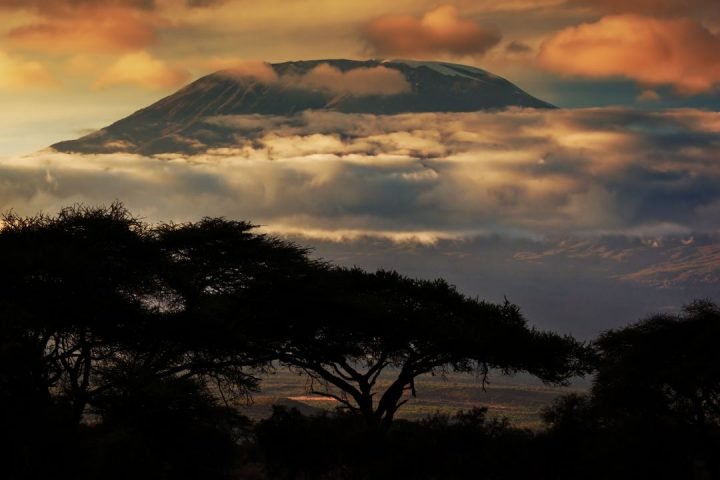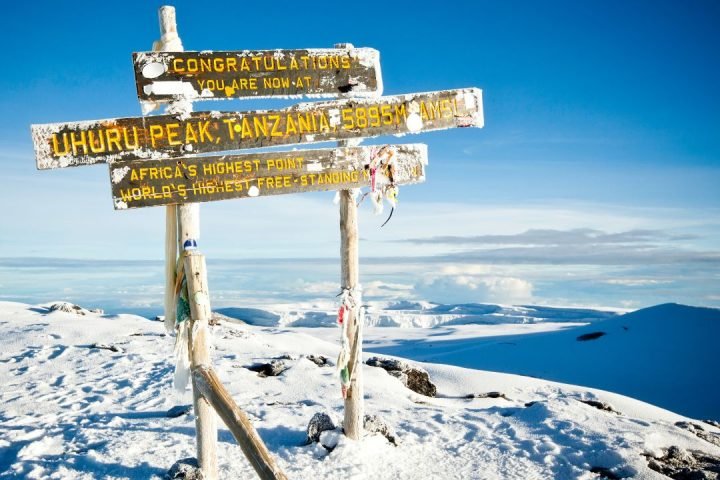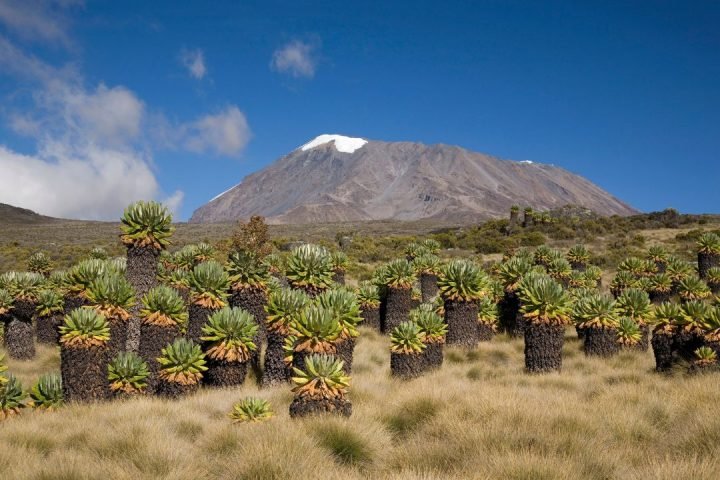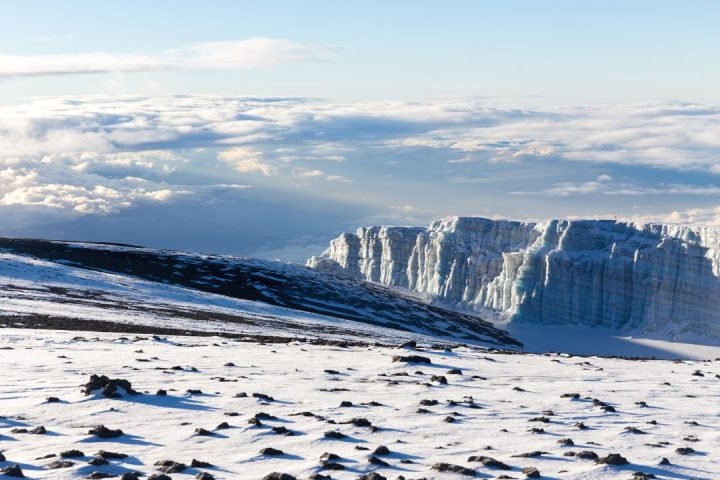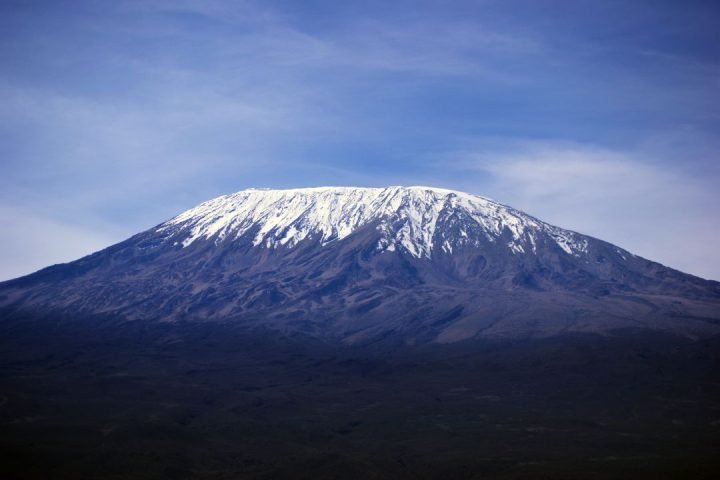5 Days Mount Kilimanjaro Trekking – Marangu Route Overview
Known as the “Coca-Cola Route,” the Marangu Route is the most popular and time-honored path to the summit of Mount Kilimanjaro. It’s the only route that provides hut accommodations along the way, offering trekkers added comfort and protection throughout their climb. This 5-day journey takes you through lush rainforest, scenic moorland, and the striking alpine desert before reaching Uhuru Peak (5,895 m) the highest point in Africa.
The Marangu Route is perfect for travelers looking for a gradual and picturesque ascent. Along the trail, you’ll witness diverse landscapes and wildlife, from vibrant tropical birds to rare mountain vegetation. With Leen Adventures, you’ll be guided by experienced mountain experts, supported by skilled cooks and porters, ensuring your climb is safe, comfortable, and truly unforgettable a remarkable adventure to the Roof of Africa.
📒 Please Note:
This trek begins and ends in Moshi. Airport transfers, park fees, and hotel accommodation before or after the climb are not included but can be arranged by Leen Adventures upon request.
5 Days Mount Kilimanjaro Trekking – Marangu Route Details
5 Days Marangu Route Highlights
5 Days Mount Kilimanjaro Marangu Route – Detailed Itinerary
Arrival Day
Upon arrival at Kilimanjaro International Airport (JRO), you’ll be warmly welcomed by a Leen Adventures representative and transferred to your hotel in Moshi or Arusha. Take time to unwind, organize your gear, and get ready for the adventure ahead. In the evening, you’ll meet your mountain guide for a comprehensive trek briefing and equipment check.
Day 1: Marangu Gate (1,860 m) to Mandara Hut (2,700 m)
Distance: 8 km | Hiking Time: 4–5 hours | Habitat: Rainforest
Your journey begins at Marangu Gate, where you’ll complete registration with park authorities. The trail winds through lush rainforest, home to blue monkeys, towering fig trees, and colorful birdlife. The walk is serene, shaded, and gradually ascending. After about 4–5 hours, you’ll arrive at Mandara Hut, nestled in a forest clearing. If you have energy, take a short hike to Maundi Crater for wide views across the plains.
Day 2: Mandara Hut (2,700 m) to Horombo Hut (3,720 m)
Distance: 12 km | Hiking Time: 6 hours | Habitat: Moorland
After breakfast, trek out of the rainforest into heath and moorland, where the trees thin out and the air becomes cooler. You’ll pass through rolling hills and fields of giant lobelias with breathtaking views of Mawenzi and Kibo Peaks. Arrive at Horombo Hut by late afternoon, your home for the next two nights.
Day 3: Horombo Hut (3,720 m) to Kibo Hut (4,720 m)
Distance: 10 km | Hiking Time: 6 hours | Habitat: Alpine Desert
Today’s trek takes you gradually upward across the saddle, a barren stretch of alpine desert connecting Mawenzi and Kibo peaks. The landscape is stark but dramatic, with sweeping views of both summits. Move slowly to conserve energy and acclimatize to the thinning air. Arrive at Kibo Hut by late afternoon, where you’ll rest and have an early dinner before preparing for the midnight summit attempt.
Day 4: Kibo Hut (4,720 m) – Uhuru Peak (5,895 m) – Horombo Hut (3,720 m)
Distance: 20 km | Hiking Time: 12–14 hours | Habitat: Arctic & Moorland
Rise just before midnight for your summit bid. The climb to Gilman’s Point (5,681 m) is steep and challenging, traversing switchbacks in the dark. From here, continue around the crater rim to Uhuru Peak (5,895 m)—the highest point in Africa—as the sun rises. After taking in the magnificent views and capturing photos, begin your descent back to Kibo Hut for a short rest, then continue to Horombo Hut for your final night on the mountain. It’s a long, demanding day — pace yourself and stay strong.
Day 5: Horombo Hut (3,720 m) to Marangu Gate (1,860 m) – Moshi
Distance: 18 km | Hiking Time: 5–6 hours | Habitat: Moorland & Rainforest
After breakfast, begin your final descent through the moorland and back into the lush rainforest. Enjoy the refreshing air and changing scenery as you approach Marangu Gate, where you’ll receive your official summit certificates. Your driver will be waiting to take you back to Moshi, where a hot shower and comfortable bed await.
Day 5: Horombo Hut (3,720 m) to Marangu Gate (1,860 m) – Moshi
Distance: 18 km | Hiking Time: 5–6 hours | Habitat: Moorland & Rainforest
After breakfast, begin your final descent through the scenic moorland and into the vibrant rainforest. Take in the fresh mountain air and the beauty of the changing landscapes as you make your way to Marangu Gate. Here, you’ll receive your official summit certificate — a proud reminder of your incredible achievement. Your Leen Adventures driver will be waiting to transfer you back to Moshi, where you can relax, enjoy a hot shower, and celebrate your successful climb.
Departure Day
After breakfast, enjoy your final morning in Tanzania before being transferred to Kilimanjaro International Airport (JRO) for your flight home or onward journey. You may also choose to extend your adventure with a thrilling Tanzania safari or a relaxing Zanzibar beach getaway — both of which can be seamlessly arranged by Leen Adventures.
🎒 Optional Gear & Rentals
Enhance your Mount Meru trekking experience with these optional gear add-ons. All equipment is subject to availability, so early booking is recommended.
💰 Tipping Guidelines
Tipping is an important tradition on Mount Meru treks. Your mountain crew—including lead guides, assistant guides, cooks, and porters—work tirelessly to support you during the climb, and tips are a meaningful way to show appreciation for their dedication and effort.
Suggested Tipping Rates:
Tips are usually handed over at the farewell ceremony at the park gate on the last day of the trek. It is best to place tips in an envelope and give them to the lead guide, who will distribute fairly among the team.
Tips should be in US Dollars (clean, undamaged notes) or Tanzanian Shillings. While tipping is not mandatory, it is customary and greatly appreciated. For larger groups, tips are often shared equally among trekkers.
Are you Up for a Challenge?
